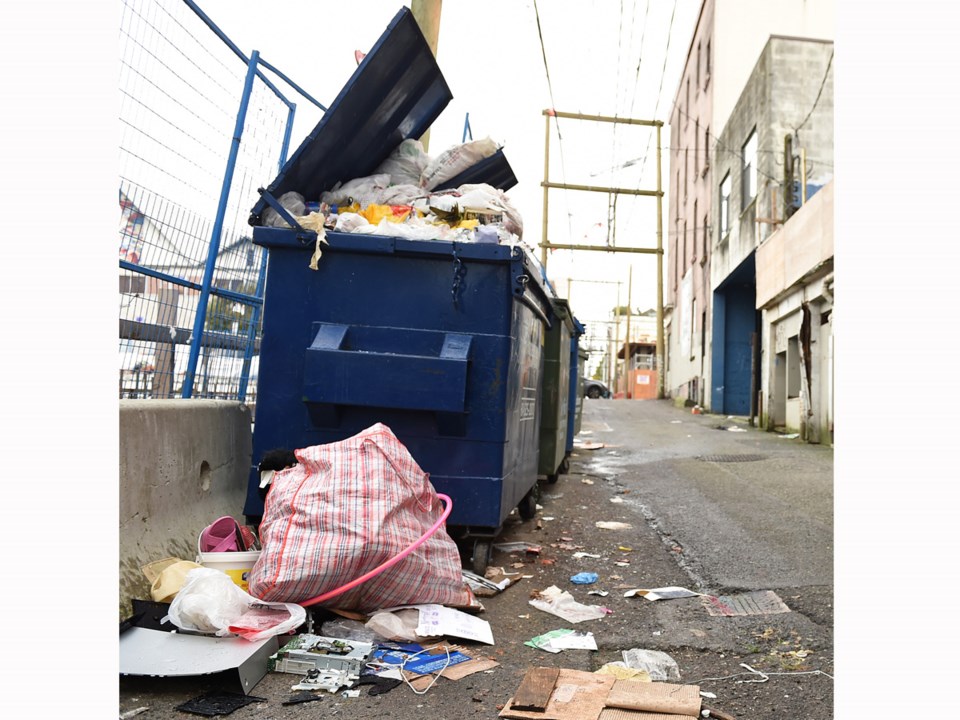Ten years ago, I ran for Vancouver city council, in part because I wanted to try and improve the living conditions and appearance of the Downtown Eastside.
During the election campaign, Gregor Robertson promised to end homelessness. I too wanted to end homelessness.
I therefore put forward three different ideas.
The first was that the city set up modular housing for homeless people on vacant lots, to be relocated to other vacant lots when the properties were ready for development. The concept was based on my 1971 architecture thesis at the University of Toronto.
While the idea was ridiculed by Downtown Eastside activists, 10 years later it is gratifying to see it gain acceptance, not just in Vancouver but around the region and province.
Another approach was family reunification. Most homeless people are estranged from their families, often for very good reasons. While many have no interest in seeing their families again, some do, but need help connecting.
I subsequently learned some social service agencies are actively pursuing this approach, especially with homeless youth. But much more should be done.
A third observation was that many homeless people would not be homeless if only they had a job. While many were not capable of working, others were.
However, if they lived on the street or in a shelter they had no address to put on a job application. Without a phone, prospective employer could not contact them. Many needed dental care and grooming to increase their chances at employment.
During the election campaign, I learned about EMBERS,the Eastside Movement for Business and Economic Renewal Society. As noted on its website embersvancouver.com, it is a registered non-profit that helps people facing barriers to work to lead productive, fulfilling lives by offering job placements, training and support.
I employed people from EMBERS to put up many of my election signs.
Following the election, I wondered why the City of Vancouver didn’t hire those who wanted to work but were homeless or living in shelters to help clean up the DTES and elsewhere. I approached the engineering department and park board, but quickly learned the answer. The city’s union would not permit this.
Fast forward to Fort Worth, Texas, 2018.
Fort Worth has been trying out a new way to get homeless people back on their feet, while cleaning up the city at the same time.
A program called Clean Slate, funded by the city and run by the Presbyterian Night Shelter, pays the area's homeless to collect trash. According to media accounts and an online video, it is a win-win proposition. It provides incomes so people can move out of homeless shelters or off the streets, and helps keep surrounding neighbourhoods clean.
One participant said he ended up homeless and distanced from his family after serving time in prison for drugs and struggling to find a job. After living in the shelter for almost two years, he's about to move into his own apartment.
Employees are welcome to work for the program as long as they want, but the long-term goal is to use the opportunity as a stepping-stone to transition into the workforce.
Fort Worth currently spends about $48,000 a year on the program, but it is planned to grow next year.
Several other U.S. cities have implemented similar programs. In 2015, Albuquerque started paying panhandlers $9 an hour to pull weeds and clean up trash around the city.
Los Angeles city council created a similar program that offers jobs to the homeless and addresses the more than 200 requests the city receives per day regarding trash issues.
When I posted the Fort Worth experience on Facebook, it received a lot of “likes.” But it also attracted a comment from a friend who pointed out it is not just the homeless who are barred from helping to keep the city clean by the unions.
My friend’s mother, who had recently moved from a house to an apartment, wanted to continue gardening, so she offered to do some weeding and gardening at Van Dusen Gardens where she volunteered.
But the union wouldn’t let her.
We need a multi-pronged approach to addressing homelessness and keeping our city streets and parks clean and tidy. I hope the next council and union leaders will agree.



